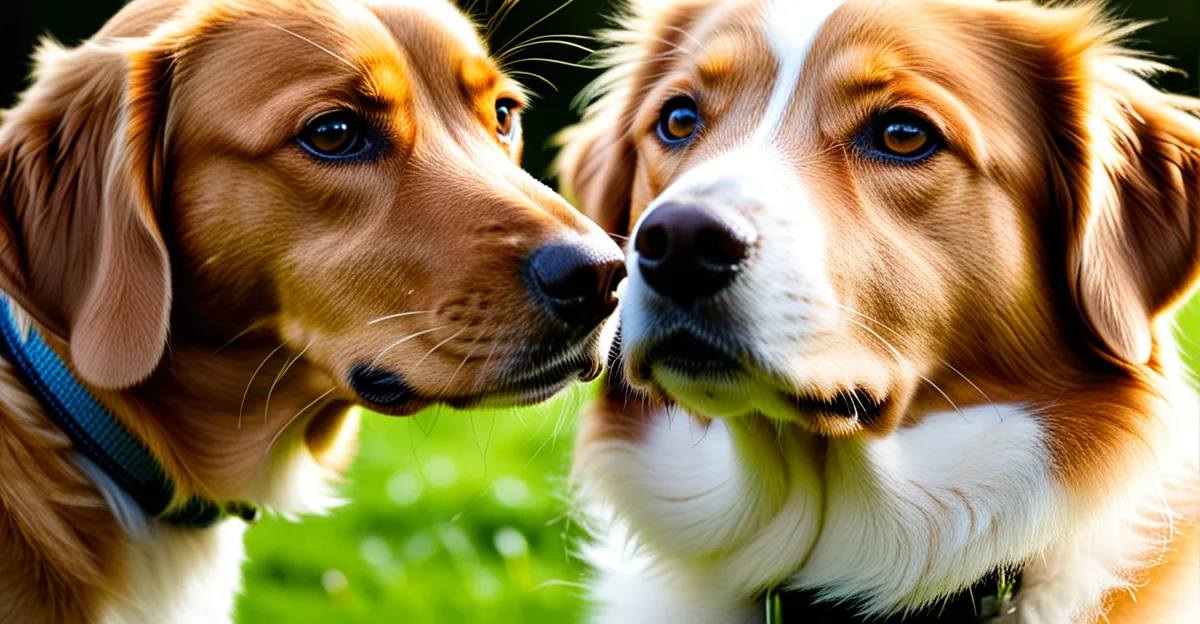Overview of Eco-Friendly Practices in Pet Care
Eco-friendly pet care refers to methods and products that minimize environmental impact, aligning with a broader awareness of sustainability. These sustainable practices can involve using environmentally safe goods, reducing waste, and adopting holistic living environments for pets. Transitioning to eco-friendly pet care is essential as it supports ecological balance and reduces the carbon footprint.
UK pet owners are increasingly embracing sustainable practices. Some are opting for products like biodegradable bags and energy-efficient pet gadgets, while others focus on reducing consumption and supporting local, sustainable pet brands. This shift is part of a broader trend towards sustainability, echoing the rise in popularity of sustainable practices globally.
Also read : Why Are British Families Increasingly Turning to Exotic Pets?
Sustainable Pet Products
As eco-consciousness gains momentum, sustainable pet products are becoming increasingly popular among consumers seeking to lower their ecological footprint. These products encompass a wide range of eco-friendly pet items, including toys made from recycled materials, organic grooming products, and environmentally safe cleaning supplies. The demand for green pet supplies is driven by a desire not only to care for pets but also to preserve the planet for future generations.
A notable trend among UK pet owners is the preference for products that align with these values. Whether it’s choosing biodegradable cat litter or collars crafted from hemp, pet owners are making choices that reflect their commitment to sustainability. Numerous brands are stepping up by offering innovative solutions. Leading names in the pet industry are launching collections focused on reducing environmental impact, such as food packaging made from compostable materials or sustainable sourcing of ingredients.
Have you seen this : Why Should UK Pet Owners Consider Adopting from Animal Shelters?
Statistics reveal a significant shift in consumer behaviour. Many pet owners are now prioritizing such sustainable options when making purchases, with a growing percentage opting for brands that publicly share their eco-friendly initiatives. This shift is part of a larger movement towards responsible consumption, as pet care blends seamlessly with environmental stewardship.
Waste Management Strategies in Pet Care
Effective pet waste management is crucial for reducing the environmental impact of pet ownership. Implementing eco-friendly waste disposal methods can significantly contribute to sustainability. Among these methods, using biodegradable pet waste solutions is increasingly popular.
Composting Pet Waste
Composting pet waste offers a sustainable way to handle pet excrement, turning it into a nutrient-rich fertilizer. This method reduces landfill waste and minimizes greenhouse gas emissions. Experts advocate for composting as a viable alternative, noting that proper techniques and systems can safely process waste at home.
Biodegradable Bags
Biodegradable bags are a practical solution for pet waste management. Unlike traditional plastic bags, they break down in the environment, reducing pollution. They are made from plant-based materials, which decompose naturally, making them an eco-friendly waste disposal choice.
Community Initiatives
Communities are increasingly adopting creative pet waste management strategies. Community initiatives focus on public awareness and provide resources, such as local composting facilities and educational campaigns. Case studies highlight successful collaborations which have achieved significant reductions in community waste footprints, showcasing the positive impact of collective action.
Alternative Feeding Options for Pets
As awareness of sustainability grows, sustainable pet food is gaining traction. Traditional feeding methods are being reconsidered in favor of eco-friendly feeding alternatives, offering not only nutritional benefits but also reduced environmental impact. One of the most notable trends is the rise of plant-based pet diets, which is reshaping how pet owners approach feeding.
Sustainable pet food options encompass a variety of sources, including insects, plant-based proteins, and lab-grown meat. These alternatives are designed to minimize the ecological footprint by consuming fewer resources and generating lower greenhouse gas emissions compared to conventional meat production. Eco-friendly feeding choices resonate strongly with environmentally conscious pet owners keen on aligning their purchasing choices with their values.
The trend towards plant-based pet diets is fuelled by the desire to provide pets with complete nutrition while being mindful of the Earth’s resources. Expert opinions often highlight the potential benefits: reducing land use and water consumption, and decreasing dependency on overfished or industrially farmed proteins. Although debates continue regarding the dietary needs of carnivorous pets, evidence suggests that carefully formulated plant-based diets can meet the nutritional requirements of dogs and other omnivorous pets.
Incorporating these sustainable feeding options is a step forward for pet owners looking to make a positive environmental impact through their pet care routines. As UK pet owners increasingly adopt these practices, the market is poised to continue evolving, with more brands innovating to meet demand for eco-friendly feeding solutions.
Environmental Impact of Eco-Friendly Pet Practices
Embracing eco-friendly practices in pet care plays a critical role in sustainability efforts, significantly reducing the carbon footprint associated with pet ownership. These practices lower environmental impacts by minimizing waste and using resources more effectively. By opting for sustainable pet care, pet owners contribute to preserving the planet while enhancing their pets’ quality of life.
The impact of eco-friendly practices can be seen in several areas. For instance, using biodegradable pet waste products diminishes pollution, while sustainable pet food reduces reliance on resource-intensive animal farming. These steps also align with reducing greenhouse gases and promoting ecological balance.
Pet care’s contribution to overall sustainability shouldn’t be underestimated. The adoption of eco-friendly practices reflects a commitment not only to pets’ health but also to broader environmental goals. This approach offers long-term benefits, such as healthier ecosystems and improved air quality, ultimately leading to holistic pet wellbeing. By prioritizing these practices, pet owners can be at the forefront of fostering a sustainable environment.
Case Studies and Statistics
With rising environmental consciousness, eco-friendly pets are garnering attention. Case studies highlighting success among UK pet owners paint a vivid picture of the ongoing shift towards sustainable pet ownership. For example, a community in Brighton implemented a collaborative project to reduce pet waste through composting, resulting in a 30% reduction of biodegradable waste sent to landfills. This case study eco-friendly pets initiative served as an inspiration, showing practical pathways to embrace sustainability.
Statistics on sustainable pet ownership further underscore this trend. According to recent research, over 60% of UK pet owners have switched to eco-friendly practices, with a noticeable uptake in sustainable pet products like toys made from recycled materials and organic food choices. These choices are often driven by consumer awareness and the desire to mitigate the environmental impact of traditional pet care.
When we compare traditional vs. eco-friendly pet ownership practices, the differences are stark. Traditional approaches tend to rely heavily on non-biodegradable materials and resource-intensive products. In contrast, eco-friendly options focus on reducing carbon footprints and enhancing the ecological balance. By adopting these practices, pet owners not only improve their pets’ quality of life but also contribute positively to the planet’s health. This comprehensive approach to pet care represents a significant stride in aligning pet ownership with global sustainability goals.
Expert Opinions and Insights
Modern pet sustainability is a topic that garners extensive discussion among industry experts who emphasize the importance of aligning pet care practices with ecological preservation. Veterinarians stress that eco-friendly practices should not compromise pet health; instead, they advocate for innovations like sustainable pet food that provide nutritional benefits while minimizing environmental impact. These insights underscore a crucial balance between maintaining pet welfare and supporting broader ecological goals.
Environmental scientists and eco-conscious advocates reiterate the urgent need for adopting sustainable practices in pet care. They cite the pivotal role of individual actions that, when collectively applied, lead to significant positive changes in environmental outcomes. By highlighting methods such as using biodegradable pet waste solutions and supporting brands with green initiatives, experts illustrate practical steps pet owners can take to mitigate their carbon footprints.
Experts also offer actionable advice for those keen on embracing eco-friendly pet care. This includes choosing green pet supplies, participating in community waste reduction initiatives, and considering plant-based diets where appropriate. Such expert insights in pet care not only assist in making informed decisions but also promote a lifestyle that supports sustainability and ecological harmony. Engaging with these perspectives helps pet owners contribute positively to sustainability in pet ownership, fostering a future where pet care and environmental stewardship go hand in hand.











